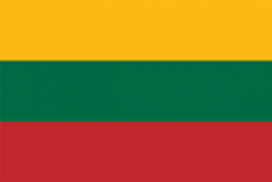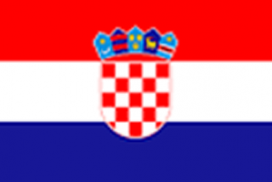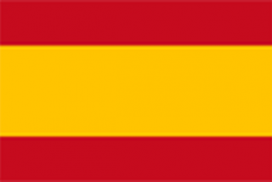Rona and Mateo (both Croatian nationals) have lived for 2 years in Australia. They then moved to Germany where their child Ana was born on 10 March 2013. The child was enrolled in a kindergarten, but she did not attend it much. Mother was her primary care-giver and she spent all of her time with the child. They had lived there for 1.5 years when family relations began to deteriorate, with lots of arguing and stress among the two.
On 6th April 2016 Mateo returned from his job and found that neither Rona nor Ana were at home. As he discovered that wardrobe and personal items were missing too, he alarmed the police and social welfare service. He assumed Ana had left with the child for Croatia.
Mateo claimed that consent for relocation was never asked, nor given. Rona claims that on 4 April 2016 Mateo assaulted her. Police intervened in this situation and drafted a report. Due to the constant danger of violence, Rona was hosted in a safe house and stayed there for 3 days. After that period, she decided to return to Croatia, her homeland, where her parents lived as well. Ever since, she lives there with Ana.
Despite the fact that as an unmarried father he would not have ex lege parental rights, Mateo acquired these with Rona’s consent soon after over Ana was born. He therefore initiates a procedure in Germany for a provisional measure granting him the sole right to determine the place of residence of the child.
He further initiates an application in Croatia for the return of the child, through the German Central Authority. Such authority sends the application for return and a clarification on the state of parental responsibility over the child under German law: it confirmed that both Rona and Mateo were holders of parental responsibility entitled to care over a child and with an equal right to determine the place of residence of their common child.
Mother refuses to the return of the child to Germany by claiming that she has suffered domestic violence by her husband. A Children’s Attorney (as appointed by the Croatian State) is taking part in the procedure before the court. The Children’s Attorney states that she had no possibility to speak to Ana’s father but she expressed her concerns that a return of Ana to Germany without her mother would not be in the child’s interest, as the bond is extremely strong and the child (now about 3 years old) is very focused on her. She instructed the court to refuse return, or seek for a secured measure for the return of the mother and the child to Germany.
The Social Welfare Centre, after work being carried out, reports to the court on its findings. The report clarifies that Rona moved away from her parents’ home where she was first located and now lives with her new partner and Ana. Rona has no work or income and she is dependent on her partner’s salary. However, Ana has a room of her own, appropriate for her age. From the psychologist’s report, it appears that the child is open and communicative, emotionally warm and has a clear speech development. Ana speaks warmly about her father. She says that her father was good to her and was always happy to be in contact with her. Still, she does not want to go anywhere without her mother. The psychologist concludes that the child has well adapted to the new situation and does not show any distress or sadness due to her mother’s sole upbringing. On the other side, Ana also does not show any fear of her father nor does she refuse to have contact with him.
Upon request of the Court in Croatia, Rona put some efforts to assure contacts of Mateo with Ana. Regular daily contacts by Skype and several physical contacts are also organized.
At the same time, based on Mateo’s request, the German Court gives a provisional measure that awards him a sole right to determine the child’s place of residence. This interim measure is taken as an urgent measure, without prior oral hearing. The provisional decision is delivered, together with its translation, to the Court in Croatia.
The Court in Croatia rendered its decision in the return procedure on 3 October 2016. It ruled that the removal of Ana from Germany to Croatia was unlawful in the sense of Art. 3 of the HC and ordered her return to Germany to her last residence. The order specifically states that the mother has to hand over the child to the father, together with the travel documents, immediately upon the finality of the decision. In its decision, the Court explains that the conditions for a refusal based on Art. 13 are not met. Indeed, pending the proceedings, the father met with the child after a couple of months and for the first time after the unlawful removal. The encounter was very emotional but certainly not a cause for a trauma on the child. The Court also placed a lot of weight on the German decision (though provisional) granting the father the sole right to determine the child’s place of residence.
Upon appeal by the abducting mother, the Court of Appeal overturns the first instance decision to a non-return order. The appellate decision is based on a psychologist report requested ex officio. The report makes clear that the father is well adapted and takes good care of the child, indeed Ana has regular contacts with her father and shows sincere affection for him. However, in consideration of her young age and maturity she is to be permanently placed with her mother. The Appellate Court thus finds there would be a violation of Art. 13(1)(b) if the child was to be separated from the mother. Court also found that the argument of domestic violence was not well considered by the first instance court, as there was clear evidence of such.
- Was the removal of the child illegal in the sense of Art. 3 of the 1980 Convention?
Questions to be analysed: habitual residence of the child, circumstances of the child’s relocatio
Applicable legislation:
- Habitual residence: Article 8 Brussels IIa Regulation
- Illegality of the removal: Article 3 Hague Child Abduction Convention and Article 2(11) of the Brussels IIa Regulation
EU case law:
CJEU Case C-523/07: for Article 8 Brussels IIa Regulation, regarding the concept of ‘habitual residence’.
CJEU Case C-400/10 PPU : for Article 11 Brussels IIa Regulation, regarding “whether a child’s removal is wrongful for the purposes of applying that Regulation is entirely dependent on the existence of rights of custody, conferred by the relevant national law, in breach of which that removal has taken place.”
- Have the reasons for refusing a return of a child referred to in Art. 13(1)(b) of the 1980 Hague Convention been met? Has the court sufficiently examined the circumstances that could lead to the application of Art. 13 (see para. 4)?
Questions to be analysed: circumstances of the child’s relocation, circumstances of the child’s stay in the country of removal, relationship with the parents, options for secure return of the child with her mother in the intra-EU abductions
Applicable legislation:
- Reasons for refusing return: Article 13(1)(b) Hague Child Abduction Convention
- Oportunity for the child to be heard: Article 11(2) Brussels IIa Regulation
- Oportunity for the left-behind partent to be heard: Article 11(5) Brussels IIa Regulation
- Adequate arrangements: Article 11(4) Brussels IIa Regulation
EU case law:
CJEU Case C-523/07: for Article 8 Brussels IIa Regulation, regarding the concept of ‘habitual residence’.
CJEU Case C-400/10 PPU : for Article 11 Brussels IIa Regulation, regarding “whether a child’s removal is wrongful for the purposes of applying that Regulation is entirely dependent on the existence of rights of custody, conferred by the relevant national law, in breach of which that removal has taken place.”
- Can the separation of a child from its mother amount to a ground for refusing return?
Questions to be analysed: circumstances relevant for the refusal of return, risk of exposure to psychological harm, relevancy of the best interest of the child
Applicable legislation:
- Reasons for refusing return: Article 13(1)(b) Hague Child Abduction Convention
ECHR case law:
Decision of 8 January 2009 in Neulinger and Shuruk v. Switzerland, application No 41615/07.
Decision of 12 July 2012 in Šneersone and Kampanella v. Italy, application No. 14737/09.
Decision of GrandChamber of 26 November 2013 in X. v Latvia, application No. 27853/09.
- Should, and if so, under what conditions, the interim measure of the German Court of Appeal affect the decision of the Croatian court on the return of the child?
Questions to be analysed: nature of the return proceedgins pursuant to 1980 Hague Convention v nature of the interim measure of the national courts; requirements for the overriding mechanism to become effective
Applicable legislation:
- The 1980 Hague Child Abduction Convention
- Provisional, including protective, measures: Article 20 Brussels IIa Regulation
- Overriding mechanism: Article 11(8) Brussels IIa Regulation
EU case law:
CJEU Case C-195/08 PPU: for Article 11(8) Brussels IIa Regulation, “once a non‑return decision has been taken and brought to the attention of the court of origin, it is irrelevant, for the purposes of issuing the certificate provided for in Article 42 of the Regulation…, that that decision has been suspended, overturned, set aside or, in any event, has not become res judicata or has been replaced by a decision ordering return, in so far as the return of the child has not actually taken place. Since no doubt has been expressed as regards the authenticity of that certificate and since it was drawn up in accordance with the standard form set out in Annex IV to the Regulation, opposition to the recognition of the decision ordering return is not permitted and it is for the requested court only to declare the enforceability of the certified decision and to allow the immediate return of the child.”
CJEU Case C-211/10 PPU: for Article 11(8) Brussels IIa Regulation which “must be interpreted as meaning that a judgment of the court with jurisdiction ordering the return of the child falls within the scope of that provision, even if it is not preceded by a final judgment of that court relating to rights of custody of the child.”

 Lietuvių
Lietuvių Hrvatski
Hrvatski Español
Español Italiano
Italiano